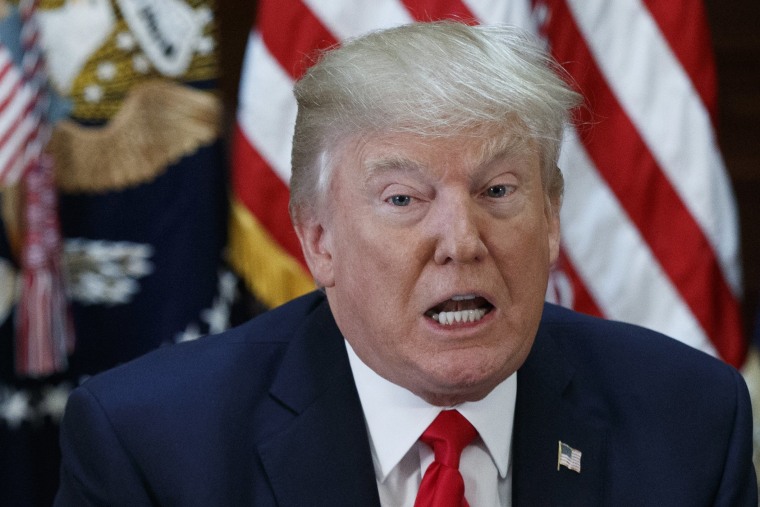Donald Trump has an important problem: a major U.S. foreign policy is working exactly as designed, and he wishes it weren't.
As a presidential candidate, Trump had convinced himself that the international nuclear agreement with Iran was a disaster. As a president, however, Trump has discovered that the policy is working quite well, and the conflict between what's true and what he wants to be true has apparently infuriated the easily confused president.
Trump's new goal is to start with the answer that makes him feel better, and then have his staff reverse-engineer the evidence to arrive at the conclusion he prefers. The New York Times reported the other day:
President Trump, frustrated that his national security aides have not given him any options on how the United States can leave the Iran nuclear deal, has instructed them to find a rationale for declaring that the country is violating the terms of the accord.American officials have already told allies they should be prepared to join in reopening negotiations with Iran or expect that the United States may abandon the agreement, as it did the Paris climate accord.
It's important to understand that Trump, presented with evidence of a successful American policy, is furious -- because he wants and expects the policy to fail.
Last week, when it came time to recertify the provisions of the deal, Trump reportedly wanted his team to present him with a rationale for abandoning the international agreement. When reality interfered, and that wasn't one of his options, the president reportedly "had a bit of a meltdown."
It's a fascinating peek into how the amateur president's mind works. He desperately wants to believe the agreement isn't working, and when the facts point in a direction that makes him uncomfortable, Trump assumes the facts must be wrong -- because his assumptions must be right.
Looking ahead, the White House appears to be committed to finding "proof" that comports with Trump's demands, which means the future of the successful Iran deal is very much in peril.
Writing in the Washington Post yesterday, Dan Drezner explained, "If he does go ahead and abrogate the Iran deal, he will get no support from the P5+1 and undercut the United States' ability to conduct financial statecraft."
Drezner added that the president's entire worldview -- on this and other issues -- runs into trouble when it turns out experts are right "and the president's 'common sense' is grounded in self-aggrandizing delusion rather than reality."
